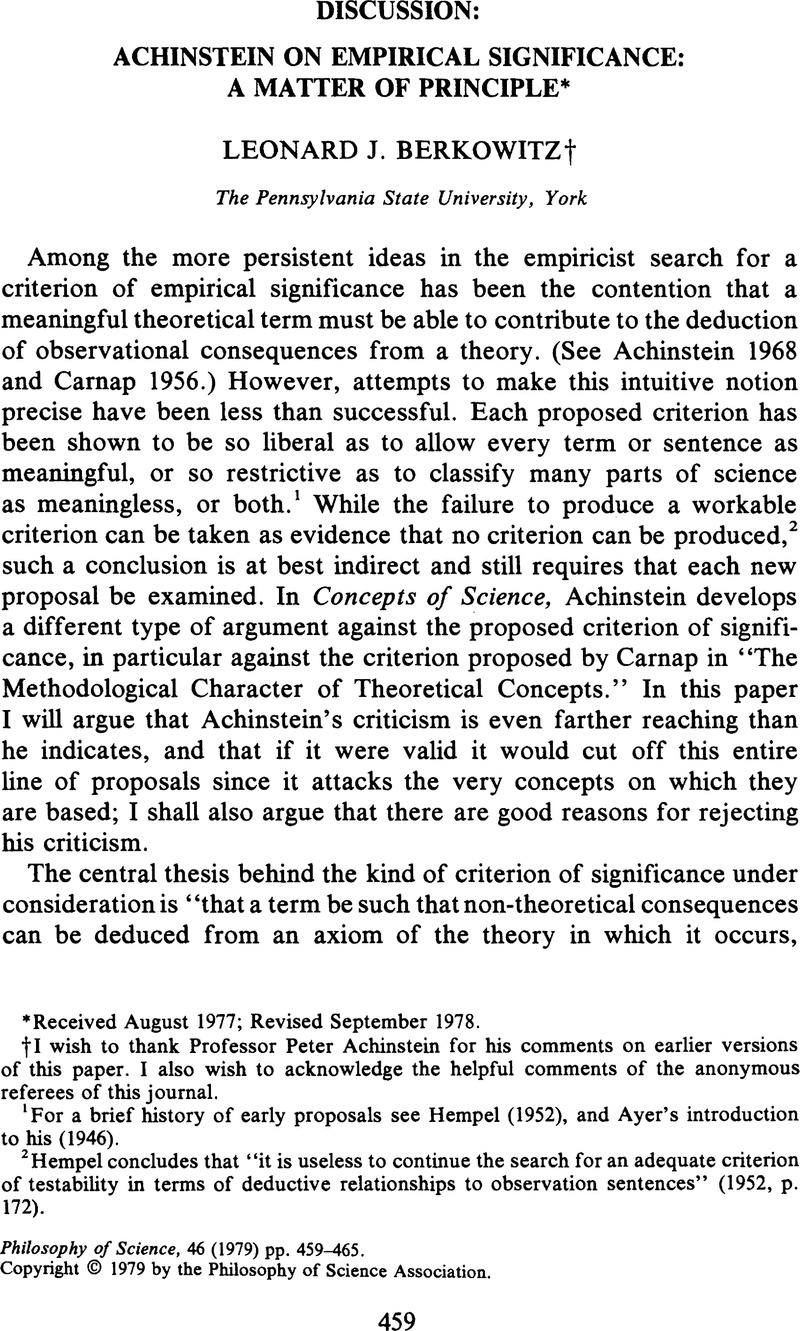No CrossRef data available.
Article contents
Discussion: Achinstein on Empirical Significance: A Matter of Principle
Published online by Cambridge University Press: 01 April 2022
Abstract
An abstract is not available for this content so a preview has been provided. Please use the Get access link above for information on how to access this content.

- Type
- Discussion
- Information
- Copyright
- Copyright © Philosophy of Science Association 1979
Footnotes
†
I wish to thank Professor Peter Achinstein for his comments on earlier versions of this paper. I also wish to acknowledge the helpful comments of the anonymous referees of this journal.
References
Berkowitz, L. J. (1975), The Observational-Theoretical Distinction in the Philosophy of Science of Logical Empiricism. Ph.D. Dissertation.Google Scholar
Carnap, R. (1956), “The Methodological Character of Theoretical Concepts.” Minnesota Studies in the Philosophy of Science, Vol. 1. Feigl, H. and Scriven, M. (eds.). Minneapolis: University of Minnesota Press, pp. 38–76.Google Scholar
Creath, R. (1976), “On Kaplan on Carnap on Significance.” Philosophical Studies 30: 393–400.CrossRefGoogle Scholar
Hempel, C. G. (1952), “Problems and Changes in the Empiricist Criterion of Meaning.” Semantics and the Philosophy of Language. Linsky, L. (ed.). Urbana: University of Illinois Press, pp. 163–185.Google Scholar
Kaplan, D. (1975), “Significance and Analyticity: A Comment on Some Recent Proposals by Carnap.” Rudolph Carnap, Logical Empiricist: Materials and Perspectives. Hintikka, J. (ed.). Dordecht: Reidel.Google Scholar
Maxwell, G. (1962), “The Ontological Status of Theoretical Entities.” Minnesota Studies In the Philosophy of Science, Vol. III, Feigl, H. and Maxwell, G. (eds.). Minneapolis: University of Minnesota Press, pp. 3–27.Google Scholar
Putnam, H. (1962), “What Theories Are Not.” Logic, Methodology and Philosophy of Science. Nagel, L., Suppes, P. and Tarski, A. (eds.). Stanford: Stanford University Press, pp. 240–251.Google Scholar
Spector, M. (1966) “Theory and Observation (1).” British Journal For the Philosophy of Science 17: 1–20.CrossRefGoogle Scholar


